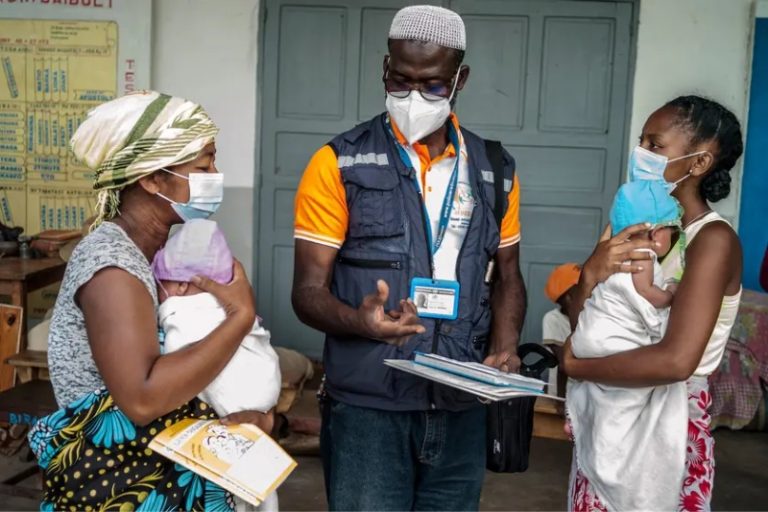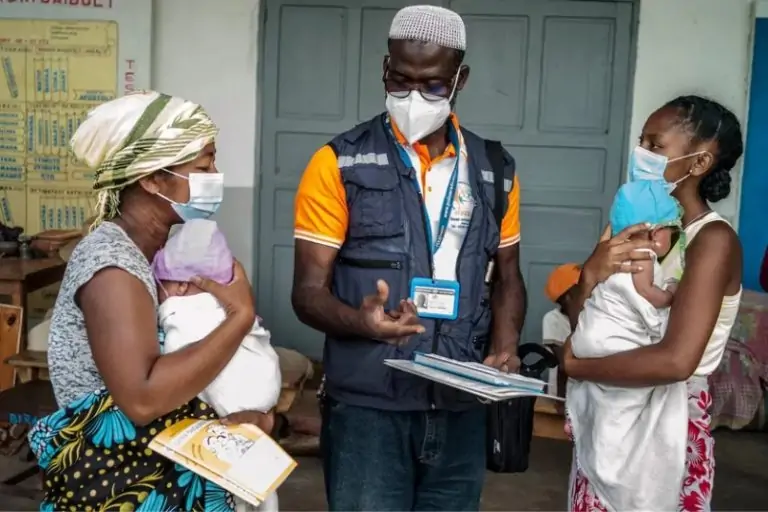

addressing challenges in doualas malaria vaccination campaign bridging the information gap
In the bustling city of Douala, the economic capital of the country, a collaborative effort between the Ministry of Public Health, the World Health Organization (WHO), and the United Nations International Children’s Emergency Fund (UNICEF) has been initiated to combat the widespread occurrence of malaria. This ambitious campaign primarily emphasizes preventative methods, with a spotlight on immunization. However, despite its critical importance, the early phase of the campaign encountered setbacks, primarily due to a noticeable lack of public participation.
The designated vaccination center at Japoma Health Center, located in the third area of the city, reported a disappointing attendance rate, particularly among females. A significant number of individuals expressed that their absence was due to inadequate information about the campaign’s commencement. This information gap has resulted in parents, especially mothers, being hesitant to allow their children to participate in the immunization program.
It appears that a strategy oversight or a communication gap may be contributing to the low turnout. Many mothers voiced opposition to the vaccination, expressing concerns about the safety and necessity of the administered vaccines. This apprehension became evident as some mothers encountered in the streets of Douala expressed reluctance to participate in the campaign. The authorities are now faced with the imperative task of reevaluating their outreach methods and communication channels to effectively bridge the existing information gap.
To ensure the success of the campaign, it is crucial to address the worries and misconceptions surrounding the vaccination initiative. Authorities are committed to increasing efforts to educate families about the benefits of the malaria vaccine and to raise awareness about its importance. The campaign aims to persuade parents to overcome their reservations and bring their children to the allocated vaccination centers in the coming days.
Despite the early obstacles, the commitment to the cause remains unwavering. Authorities recognize the need to adapt their strategies to the specific concerns of the community, ensuring that the information reaches the public effectively. Dispelling misconceptions and addressing worries is pivotal for fostering acceptance and active participation in the vaccination campaign.
The Oklahoma City Thunder secured their tenth consecutive victory by beating the Chicago Bulls 145-117. This victory raised their season…
Rob Walter Resigns his Position as coach for the Proteas men's team for white-ball games because personal problems needed attention.…
Starting April 2, South African drivers will get lower costs when filling their tanks as fuel prices decrease for all…
The U.S.-based driver training company Zutobi analyzed road safety worldwide and found South Africa stays last in driving danger since…
The Basketball Africa League (BAL) returns for its 2025 season with exciting changes and developments. Since 2019 the NBA-linked basketball…
The Somali president supports their military forces to eliminate the threats from Al-Shabaab, ISIS, and Al-Qaeda. The Somali National Army…
This website uses cookies.